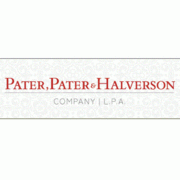What Are Revocable Living Trusts?

Revocable living trusts are some of the most popular estate planning tools for distributing property to your loved ones. The term “revocable” simply means you can modify these arrangements should your circumstances ever change, and “living” refers to the fact that you must create it when you are still alive and of a sound mind. If you want to learn more about creating trusts and wills, turn to Pater, Pater & Halverson Co. in Hamilton, OH.
Unlike those left in wills, any assets you include in a trust do not have to go through the probate process upon your death. This is, perhaps, the greatest advantage of a revocable living trust, because it means your loved ones will not have to go through lengthy legal proceedings to access the assets you want them to have. Trusts also remain private after your death, whereas wills become public record.
 Before you can leave assets in a trust, you must transfer ownership of them to the trust itself; however, with a revocable living trust, you will still maintain complete control of this property. Popular assets to leave in a trust include real estate, bonds, stocks, and cash.
Before you can leave assets in a trust, you must transfer ownership of them to the trust itself; however, with a revocable living trust, you will still maintain complete control of this property. Popular assets to leave in a trust include real estate, bonds, stocks, and cash.
To create a legally binding trust, you must also designate a trustee. Similarly to the executor of a will, the trustee will administer the assets in the trust, according to the guidelines you set forth. As the grantor, you can make changes to these guidelines as needed; however, the trust will become irrevocable after your death.
A will may be the most basic estate planning document, but there are several advantages of establishing a revocable living trust as well. If you want to create a trust, turn to the seasoned legal team at Pater, Pater & Halverson Co. in Hamilton, OH. Visit the website to learn more about their experience creating wills and trusts, and call (513) 867-1411 to discuss your estate planning needs today.
About the Business
Have a question? Ask the experts!
Send your question

